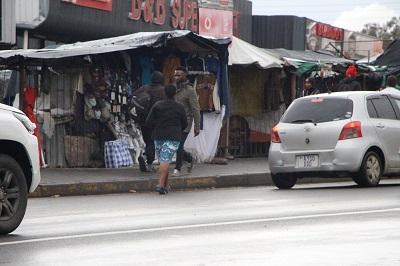Africa-Press – Lesotho. A new World Bank report has laid bare the tough realities facing Lesotho’s private sector, citing a myriad of poor infrastructure, skills shortages, and an overpowering public sector as major roadblocks to economic growth.
“Lesotho’s private sector development is hindered by a weak business environment, a dominant public sector, skill shortages, limited access to financing among small and medium-sized enterprises, and a large infrastructure gap. These conditions have limited employment opportunities and discouraged investments in production and export diversification,” reads the report.
The small business owners have previously expressed concerns that the environment is not just tough but almost counter-productive. They have cited among others high operating costs, limited access to finance and poor infrastructure as some of the barriers to their growth.
The report goes on to show that to mitigate these challenges, there should be reforms aimed at improving the business environment, expanding access to quality education, and boosting credit to the private sector will be crucial to spur growth and job creation, especially for younger workers.
“To accelerate private-sector development, the government could consider reforms in three areas: incentivizing private investment and the creation of new businesses, improving education outcomes, and expanding credit to the private sector.”
It says the new policies could open up fresh chances for business and investment.
Making it cheaper and easier to start and run a business by cutting red tape, speeding up government decisions, and reducing how much officials can influence investment choices would lower both costs and uncertainty.
According to the report, the government could also push ahead with its investment plans and make the rules clearer for foreign investors in the business licensing and registration laws. Lesotho can take advantage of regional trade deals while also working to improve trade systems and transport links.
“By aligning its policies with regional agreements such as the African Continental Free Trade Area (AfCFTA), Lesotho could reinforce its reputation as a business-friendly environment, particularly for exporters. Favoring open markets and competition is another key measure. The government could encourage competition by upgrading and modernizing its competition law and by reinforcing the level playing field between the public and the private sector through the State-Owned Enterprise (SOE) Policy.
“This policy could integrate provisions to enhance efficiency, promote good governance, and strengthen transparency and accountability in the use of public funds associated with SOE activity,” further reads the report.
The World Bank states that the Economic Inclusion Programmes (EIPs) offer a promising pathway by providing poor and vulnerable populations with integrated support such as cash transfers, skills training, productive grants, and financial inclusion to transition from subsistence to sustainable livelihoods.
EIPs, reportedly could play a critical role in fostering self-employment and small enterprise development, particularly for women and youth.
For the 2025/2026 financial year, Minister of Finance and Development Planning Dr Retšelisitsoe Matlanyane had stated that as part of the government’s commitment to inclusive and sustainable economic growth, an essential pillar for stimulating private sector development, approximately M1.9 billion has been invested in initiatives aimed at, among other things, improving infrastructure and equipping businesses with the necessary skills.
It continues: “Evidence shows that well-designed EIPs are cost-effective and lead to meaningful improvements in income, resilience, and economic mobility. Integrating EIPs into existing safety nets like the Child Grants Program and Public Assistance can reduce dependency on transfers and drive inclusive, sustainable growth.”
For More News And Analysis About Lesotho Follow Africa-Press






